World
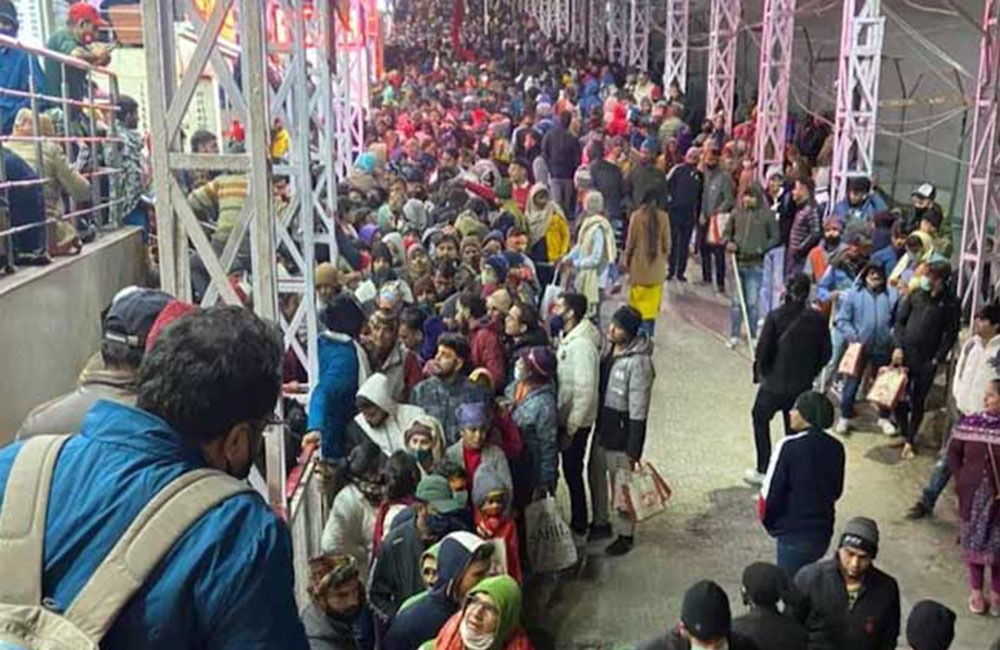
India: At least 12 dead in New Year temple stampede
At least 12 people were killed and several others injured after a stampede at a religious shrine in India.
Pilgrims were visiting the shrine of Mata Vaishno Devi in Indian-administered Kashmir on Saturday when the tragedy unfolded.
Prime Minister Narendra Modi said he was "saddened" by the loss of life.
Tens of thousands of people usually visit the shrine every day, and it is thought there was a peak in visitors because of the holiday season.
According to a senior police officer, 14 people were injured in the stampede, with all of them taken to hospital.
One senior government official told AFP news agency that the death toll could rise as the shrine was incredibly busy with people trying to visit for the New Year.
The shrine, located near the town of Katra, is among India's most revered pilgrimage sites. Visitor numbers have been capped to around 25,000 because of the pandemic.
It is not yet clear caused the stampede in the early hours of the morning, but some eyewitnesses claimed crowds at the site were not being managed properly.
An investigation into the incident has been launched.
In a tweet, Modi said "Extremely saddened by the loss of lives due to a stampede at Mata Vaishno Devi Bhawan. May the injured recover soon."
(Source: BBC)
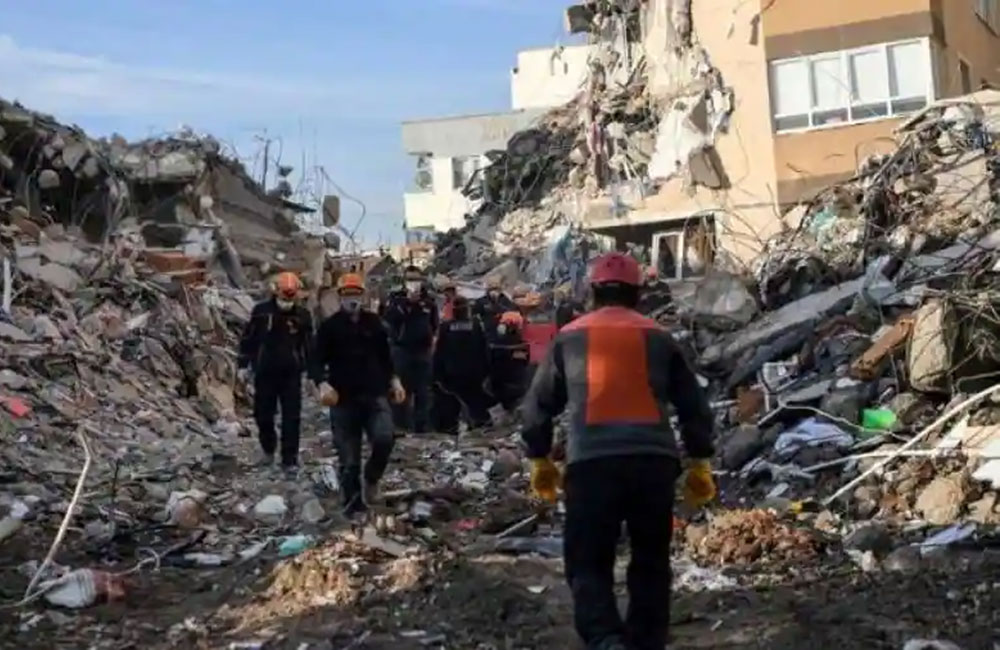
Greece quake: Strong tremor shakes Crete
The Greek island of Crete has been hit a 6.4-magnitude earthquake, says the US Geological Survey (USGS), with the epicentre near the eastern tip.
Some buildings were damaged, and thousands of people were seen leaving their homes in panic. There are so far no reports of casualties.
Greece's Institute of Geodynamics put the epicentre slightly further east, in the sea, and said it was a 6.3 quake.
Tremors were felt across several of the Dodecanese islands.
Crete was hit last month by a 5.8-magnitude quake, which killed one and caused damage.
The USGS said the epicentre of Tuesday's earthquake at 09:24 GMT was Crete's eastern village of Palekastro. The USGS placed the tremor at a depth of 10km (6 miles), which is fairly shallow and therefore liable to cause more damage.
The Institute of Geodynamics put the epicentre 32km south-east of the eastern town of Zakros and said it was slightly deeper.
Several aftershocks have been reported.
The small church of Agios Nikolaos, in the village of Xerokampos, was brought down in the latest tremor.
There have also been reports of rockslides across the island.
Greece is hit from time to time by earthquakes as it lies on a network of geological faultlines.
BBC
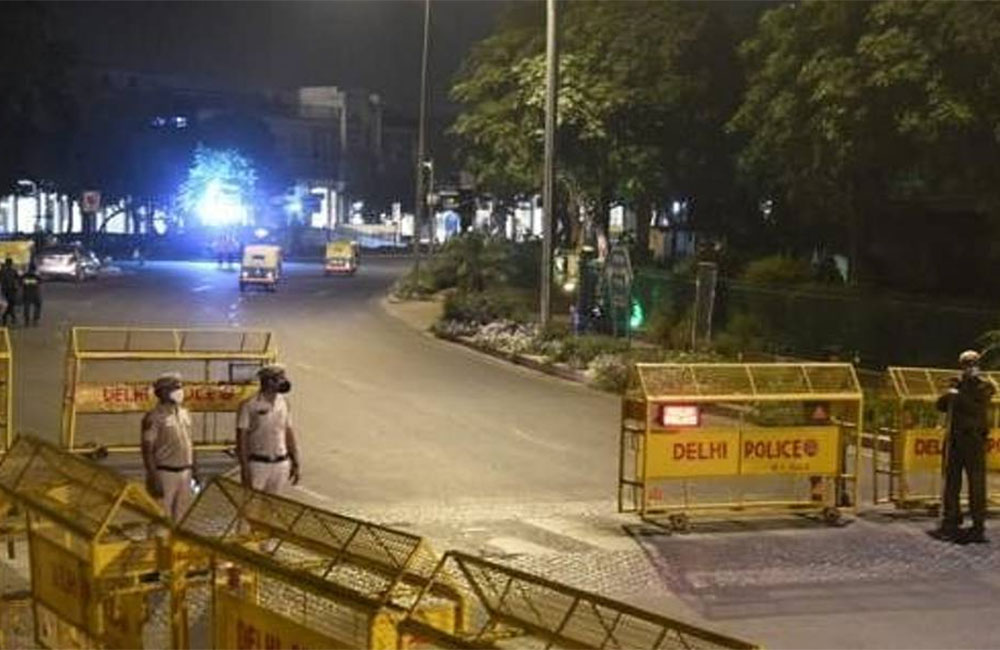
New Delhi goes in to curfew on Monday (27) night
The Indian government announced on Sunday (26) that a curfew will be imposed in New Delhi with effect from 11pm to 5am (IST).
The announcement was made as there was a surge in Covid 19 cases when the national capital touched 0.55%
On Sunday, Delhi recorded 290 COVID-19 cases, with a 0.55 percent positivity rate. A ‘yellow’ alarm is sounded if the positive rate stands at 0.5 percent for two days in a row, according to the Graded Response Action Plan (GRAP).
With the ‘yellow alert,’ a series of restrictions take effect, including night curfews, school and college closures, decreased seating capacity in Metro trains and buses, and the closure of non-essential shops and malls, among others.
With cases of Omicron seeing a sudden spike across the country, various states have announced stricter regulations, including compulsory vaccination for accessing public places, home quarantine for all international passengers, night curfew and restrictions on the number of people who can assemble in places like markets.
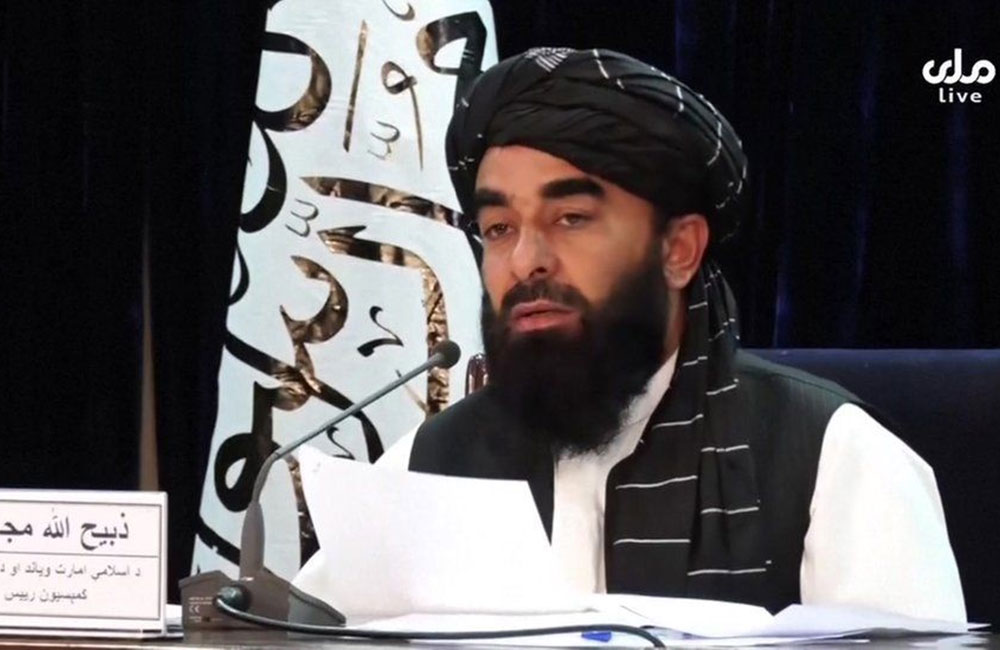
Taliban announce new government for Afghanistan
The Taliban have announced an interim government in Afghanistan, and declared the country an "Islamic Emirate".
The government will be led by Mullah Mohammad Hassan Akhund, one of the movement's founders.
The interior minister will be a feared FBI-wanted leader of the Haqqani militant group.
The Taliban seized control of most of the country more than three weeks ago, ousting the previous elected leadership.
The announcement of the acting cabinet is a key step in the formation of a Taliban government.
"We know the people of our country have been waiting for a new government," Zabihullah Mujahid said, adding that the group had answered the people's needs.
Sarajuddin Haqqani, the new acting interior minister, is head of the militant group known as the Haqqani network who are affiliated with the Taliban and have been behind some of the deadliest attacks in the country's two-decade-long war.
Unlike the wider Taliban, the Haqqani network has been designated a foreign terrorist organisation by the US.
Other appointments include Mullah Yaqoob as acting defence minister, Amir Khan Muttaqi as acting foreign minister, and Taliban co-founder Mullah Abdul Ghani Baradar and Mullah Abdul Salam Hanafi as two deputies.
Asked why no women were appointed, Ahmadullah Wasiq told the BBC's Secunder Kermani that the cabinet had not been finalised yet.
This breaking news story is being updated and more details will be published shortly. Please refresh the page for the fullest version.
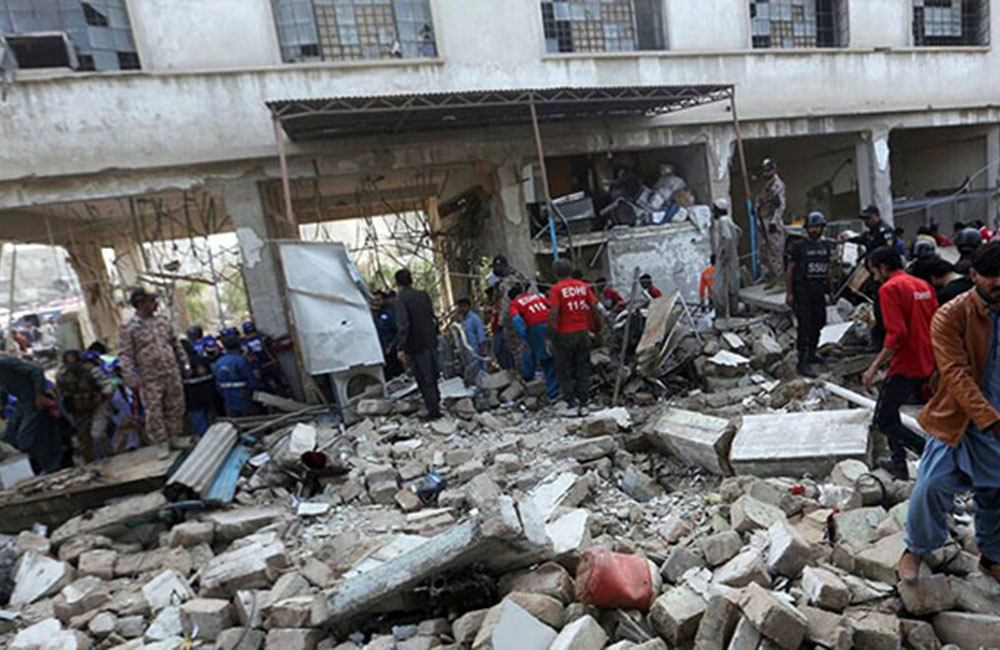
Explosion at Pakistan bank branch kills at least 15
An explosion at a bank in Pakistan's southern city of Karachi has killed at least 14 people, police say.
Many others were injured in the blast, which is believed to have been caused by a gas leak from a sewage drain.
Witnesses told local media many people were buried in the debris. There are fears the death toll will rise.
Footage from the scene showed windows and doors at the Habib Bank building blown out, vehicles damaged, and documents strewn across the street.
"Our explosives teams are at work trying to ascertain the nature of the blast, but apparently the structure was constructed on a drain and gas could be a probable cause," police officer Sarfaraz Nawaz told reporters.
In a statement on Twitter, Habib Bank said "an unfortunate incident, involving an explosion, took place at our branch" on Saturday afternoon.
"Our sympathies are with the bereaved families".
(BBC)
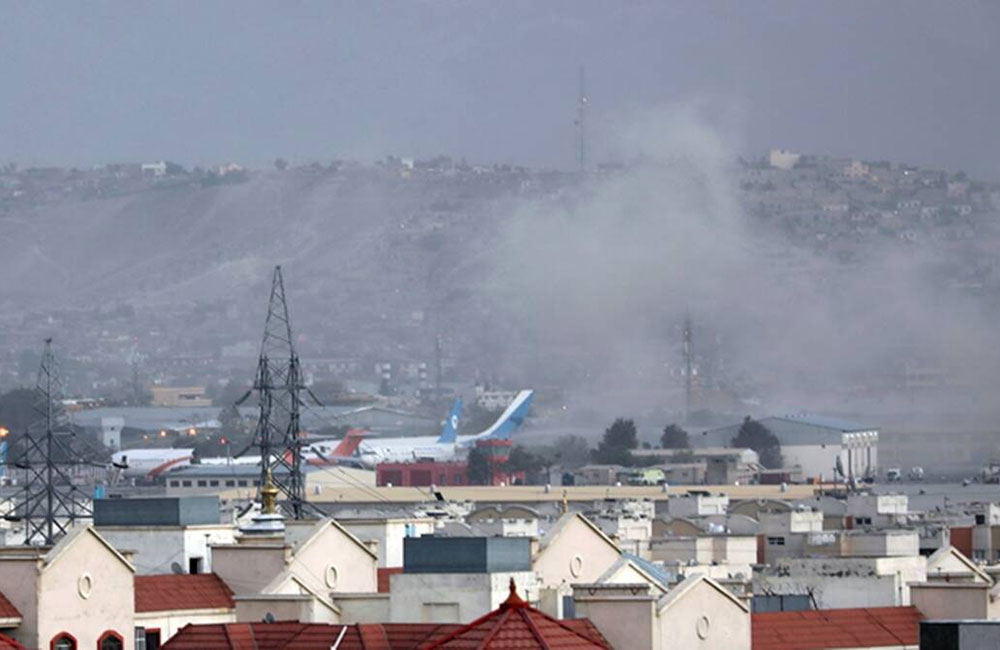
Explosion outside Kabul airport, casualties unclear - reports
There has been an explosion outside the Kabul airport, the Pentagon press secretary said on Thursday, adding that it was unclear whether there were casualties amid the large evacuation effort in Afghanistan’s capital.
U.S. President Joe Biden has been briefed on the explosion, according to a White House official. Biden was in a meeting with security officials about the situation in Afghanistan, where the United States is in the final steps of ending its 20-year war, when the explosion was first reported, according to a person familiar with the matter.
The United States has been racing to airlift its citizens and some Afghan citizens from Kabul before its military is set to fully withdraw from Afghanistan on Aug. 31.
The explosion came hours after British Armed Forces Minister James Heappey said there was “very credible” intelligence that militants were planning an attack on people gathering at the airport, foreign media reported.
Western nations had warned of a possible attack on Kabul’s airport in the waning days of the massive evacuation efforts.
Several countries urged people to avoid the airport, where an official said there was a threat of a suicide bombing. But just days — or even hours for some nations — before the evacuation effort ends, few appeared to heed the call.
Over the last week, the airport has been the scene of some of the most searing images of the chaotic end of America’s longest war and the Taliban’s takeover, as flight after flight took off carrying those who fear a return to the militants’ brutal rule.
Already, some countries have ended their evacuations and begun to withdraw their soldiers and diplomats, signaling the beginning of the end of one of history’s largest airlifts. The Taliban have so far honored a pledge not to attack Western forces during the evacuation, but insist the foreign troops must be out by America’s self-imposed deadline of Aug. 31
-Agencies
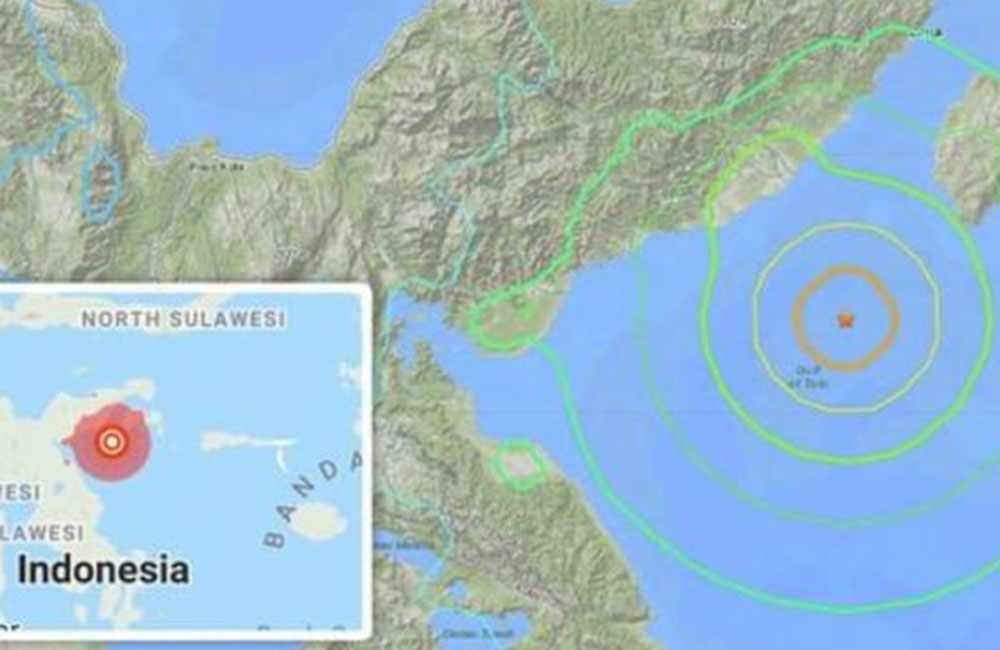
Powerful 7.4 magnitude earthquake strikes Indonesia
A powerful 7.4-magnitude earthquake struck eastern Indonesia on Tuesday triggering a tsunami warning, the meteorological department of the Southeast Asian nation said, but there was no immediate word on any casualties or damage.
“Everyone ran out into the street,” Agustinus Florianus, a resident of Maumere town on Flores island, told Reuters.
Tsunami warnings were issued for the areas of Maluku, East Nusa Tenggara, West Nusa Tenggara and Southeast and South Sulawesi, after the quake hit 112 km (69.59 miles) northwest of Larantuka, in the eastern part of Flores, at a depth of 12 km.
The U.S. Geological Survey later said the quake, which struck at 0320 GMT, had a magnitude of 7.3. An aftershock of 5.6 magnitude hit Larantuka after the first quake, the Indonesian agency said.
“It felt like a wave, up and down,” Zacharias Gentana Keranz, a resident of Larantuka told Reuters.
Alfons Hada Betan, head of East Flores Disaster Mitigation agency in Larantuka said there were no immediate reports of damage and the quake was felt for several minutes as people fled from their homes.
People said on social media the earthquake was also felt strongly in Makassar, South Sulawesi.
The U.S-based Pacific Tsunami Warning Center said that based on preliminary earthquake parameters, hazardous tsunami waves were possible for coasts located within 1,000 km (621.37 miles) of the earthquake’s epicentre.
Muhamad Sadly, an official with the meteorology agency told Metro TV people should stay away from beaches adding that the tsunami warning would be lifted at least two hours after it was issued.
Indonesia straddles the “Pacific Ring of Fire”, an area of high seismic activity that rests atop multiple tectonic plates.
At least 48 people were killed and hundreds injured when the Mount Semeru volcano erupted on Java island on Dec. 4.
Meanwhile, The Disaster Management Centre (DMC) of Sri Lanka said there are no Tsunami threats to the island nation from the earthquake off Indonesia.
Source: Reuters
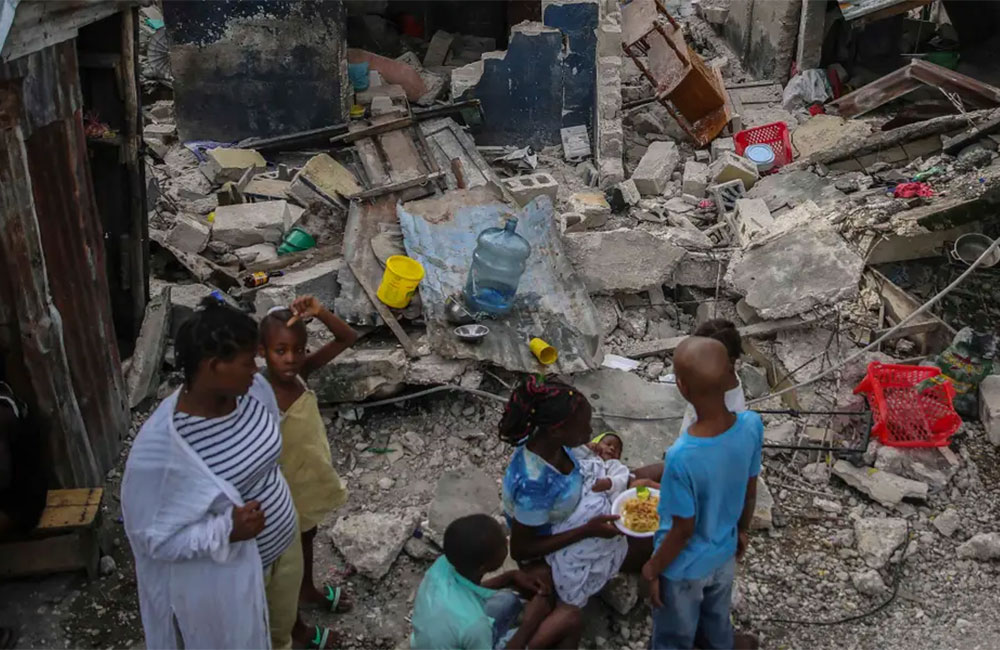
304 Dead After A 7.2 Magnitude Earthquake Hits Haiti
A massive 7.2 magnitude earthquake struck Haiti on Saturday morning, the U.S. Geological Survey said, raising fears of destruction similar to the devastating 2010 quake that shattered the country.
At least 304 people have died and more than 1,800 were injured, according to Haiti’s civil protection service. The USGS predicts the death toll could reach into the thousands.
In a news conference on Saturday evening, the head of the country’s civil protection agency, Jerry Chandler, said 304 people had been confirmed dead – up from an initial toll of 29 – while at least 1,800 others were injured.
Chandler told reporters 160 of the deaths were reported in Haiti’s southern department; 42 were in Nippes; 100 were in Grand Anse, and two were in the country’s northwest.
The earthquake struck on Saturday morning 12km (7.4 miles) northeast of Saint-Louis du Sud, on Haiti’s southern Tiburon Peninsula, at a shallow depth of 10km (6.2 miles), the United States Geological Survey (USGS) reported.
It is the latest crisis to befall the Caribbean nation, which is struggling amid widespread gang violence and ongoing political instability in the aftermath of the assassination of President Jovenel Moise last month.
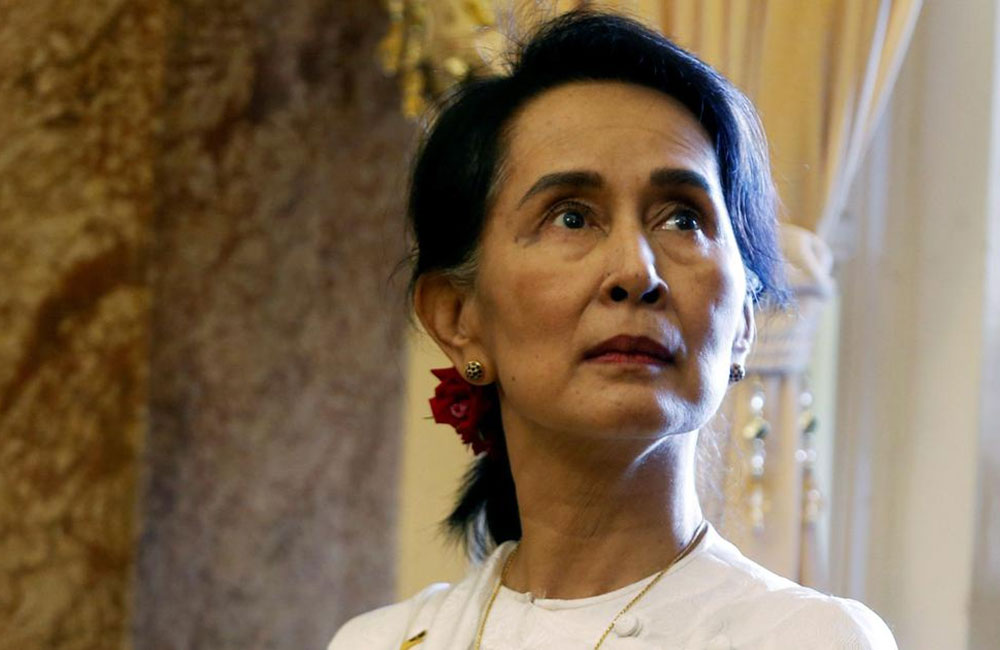
Aung San Suu Kyi sentenced to four years in prison
Ousted Myanmar leader Aung San Suu Kyi has been sentenced to four years in prison, in the first in a series of verdicts that could jail her for life.
She was found guilty on charges of inciting dissent and breaking Covid rules under a natural disasters law.
She has 11 charges laid against her. Ms Suu Kyi has denied all the charges.
The 76-year-old was leading an elected civilian government before being ousted by a military coup in February.
The military seized power alleging voter fraud in general elections held last year in which the NLD won by a landslide.
Ms Suu Kyi has since been placed under house arrest and slapped with an array of charges, including multiple counts of corruption, violating the official secrets act and of inciting public unrest.
Little has been seen or heard of her apart from her brief court appearances.
(BBC)
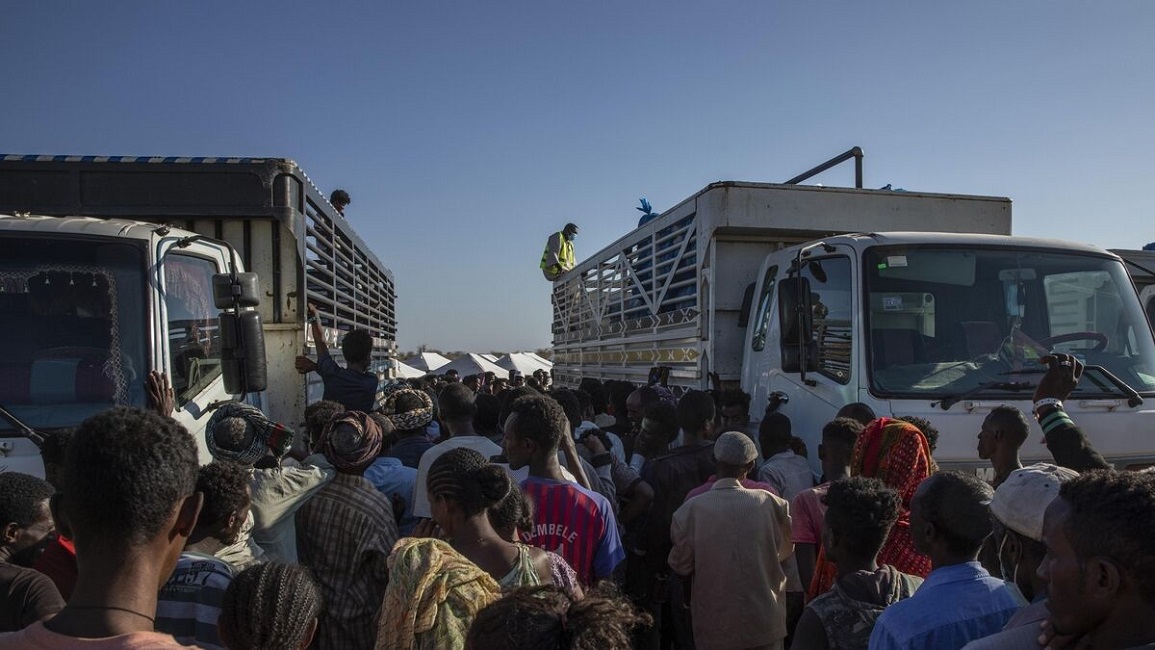
More than 400,000 people facing famine in Ethiopia
While a unilateral cease-fire was declared by the government of Ethiopia last week, the U.N officials have warned of increasing starvation and violence in Tigray, Ethiopia.
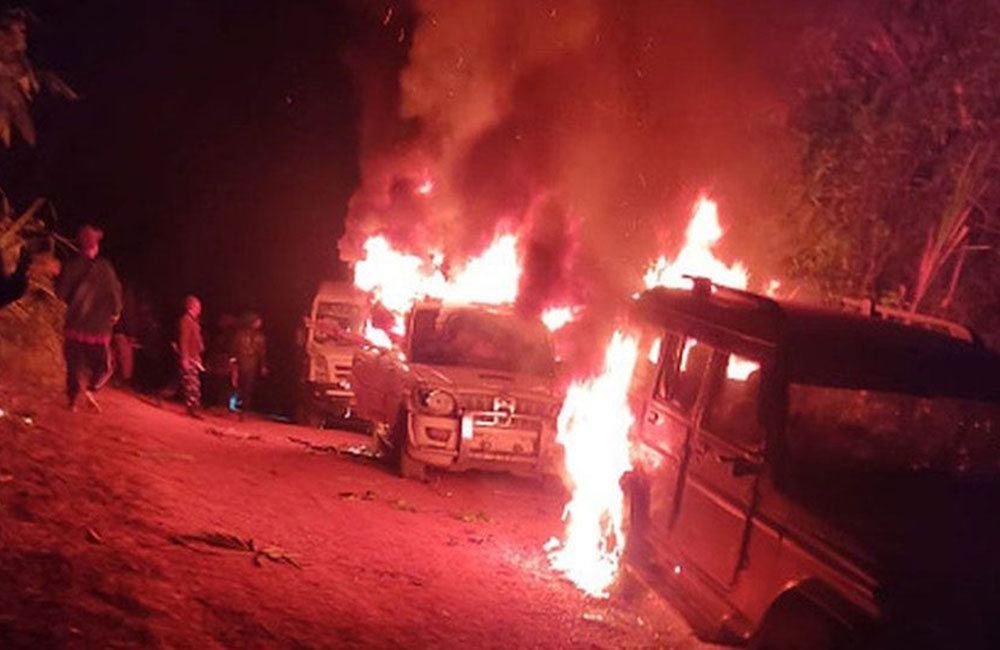
Indian forces kill 13 civilians amid ambush blunder
Security forces in India's north-eastern state of Nagaland have killed at least 13 civilians in an ambush near the border with Myanmar, officials say.
An army patrol mistakenly opened fire on miners returning home after work, killing six. Seven more civilians and an Indian soldier died when angry locals confronted troops.
Home Minister Amit Shah said he was "anguished" and vowed to investigate.
The army has been battling separatist militants in Nagaland for years.
But Indian forces have been accused of wrongly targeting innocent locals in their operations.
The incident on Saturday night took place in and around Oting village in Mon district, which borders Myanmar, during a counterinsurgency operation, a senior official told the Reuters news agency.
Soldiers from the Assam Rifles, an Indian army unit, opened fire on a truck carrying 30 or more coalmine labourers near their camp.
"The troopers had intelligence inputs about some militant movement in the area and on seeing the truck they mistook the miners to be rebels and opened fire killing six labourers," the official said, requesting anonymity as he was not authorised to speak with the media.
As news spread of the killings, hundreds of locals surrounded the camp before burning vehicles belonging to the Assam Rifles and clashing with troopers using "crude weapons", he said.
Soldiers then shot dead a further seven people, state police officer Sandeep M Tamgadge told the AFP news agency.
The Indian army said in a statement that one of its soldiers was killed in the clash, while others were injured.
"The cause of the unfortunate loss of lives is being investigated at the highest level," it said.
Mr Shah expressed his "deepest condolences" to the families of those killed and promised to "ensure justice".
(BBC)

Indonesian Covid deaths add to questions over Sinovac vaccine
At least 10 out of 26 Indonesian doctors who have died from Covid-19 this month had been fully vaccinated with Sinovac, prompting authorities to consider whether medics should receive alternative doses to boost immunity.
Page 16 of 51